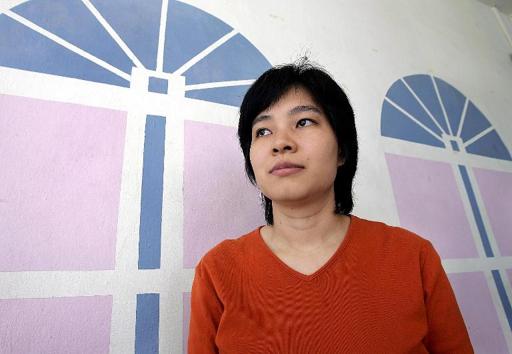Singapore on Wednesday banned a local documentary about nine dissidents living in exile, saying its contents undermined national security.
The film "To Singapore, with Love", directed by Singaporean director Tan Pin Pin, features interviews with the former activists and student leaders who fled Singapore from the 1960s until the 1980s and are currently settled in countries including Britain and Thailand.
The 70-minute documentary was released in December last year and has been screened at film festivals in Germany, Dubai, South Korea and the United States.
Singapore's Media Development Authority (MDA) said in a statement it had "assessed that the contents of the film undermine national security because legitimate actions of the security agencies to protect the national security and stability of Singapore are presented in a distorted way as acts that victimised innocent individuals".
It said a number of the exiles were former members of the Communist Party of Malaya (CPM) which had sought to overthrow governments in Singapore and Malaysia in the 1950s and 1960s.
"The individuals in the film have given distorted and untruthful accounts of how they came to leave Singapore and remain outside Singapore," the media regulator added.
MDA said the individuals were not denied the right to return to Singapore or forced to leave the city-state, as was portrayed in the movie.
"The government has made it clear that it would allow former CPM members to return to Singapore if they agree to be interviewed by the authorities on their past activities to resolve their cases," it said.
Very disappointed
A description posted on the film's official website said the documentary explores how the exiles "lived their lives away and how they still view the Singapore of their dreams".
"They are now in their 60s to 80s. Some were activists, student leaders, others were card carrying communists," it said.
Tan, the film's director, said she was "very disappointed that my film is banned".
"By doing this, MDA is taking away an opportunity for us Singaporeans to see it and have a conversation about it and our past," she said in a Facebook post.
"We need to be trusted to be able find the answers about ourselves, for ourselves," she added.
But Singapore's information minister Yaacob Ibrahim said he supported the media regulator's decision.
"Individuals who have chosen to leave and remain outside Singapore, and refused to account for their past actions, should not enjoy a public platform to purvey distorted and untruthful accounts to mislead the public, absolve themselves or deny their past actions," he said in a statement on Facebook.
Malaysia gained independence in 1957 and Singapore in 1965, both from Britain, after brief periods of self-rule.
The Southeast Asian city-state famous for strict social controls has relaxed censorship rules in recent years, but maintains strict regulations on films that discuss local politics.
In 2010, the government ordered Singaporean filmmaker Martyn See to take down a YouTube video of a rare public talk by Lim Hock Siew, a doctor and activist held from 1963 to 1982 during then prime minister Lee Kuan Yew's rule.
In 2007, it banned a film by See on another political detainee, Said Zahari, a journalist.
Zahari and Lim were among more than 100 people alleged to be communists by Lee's government and rounded up in the early 1960s.





















































